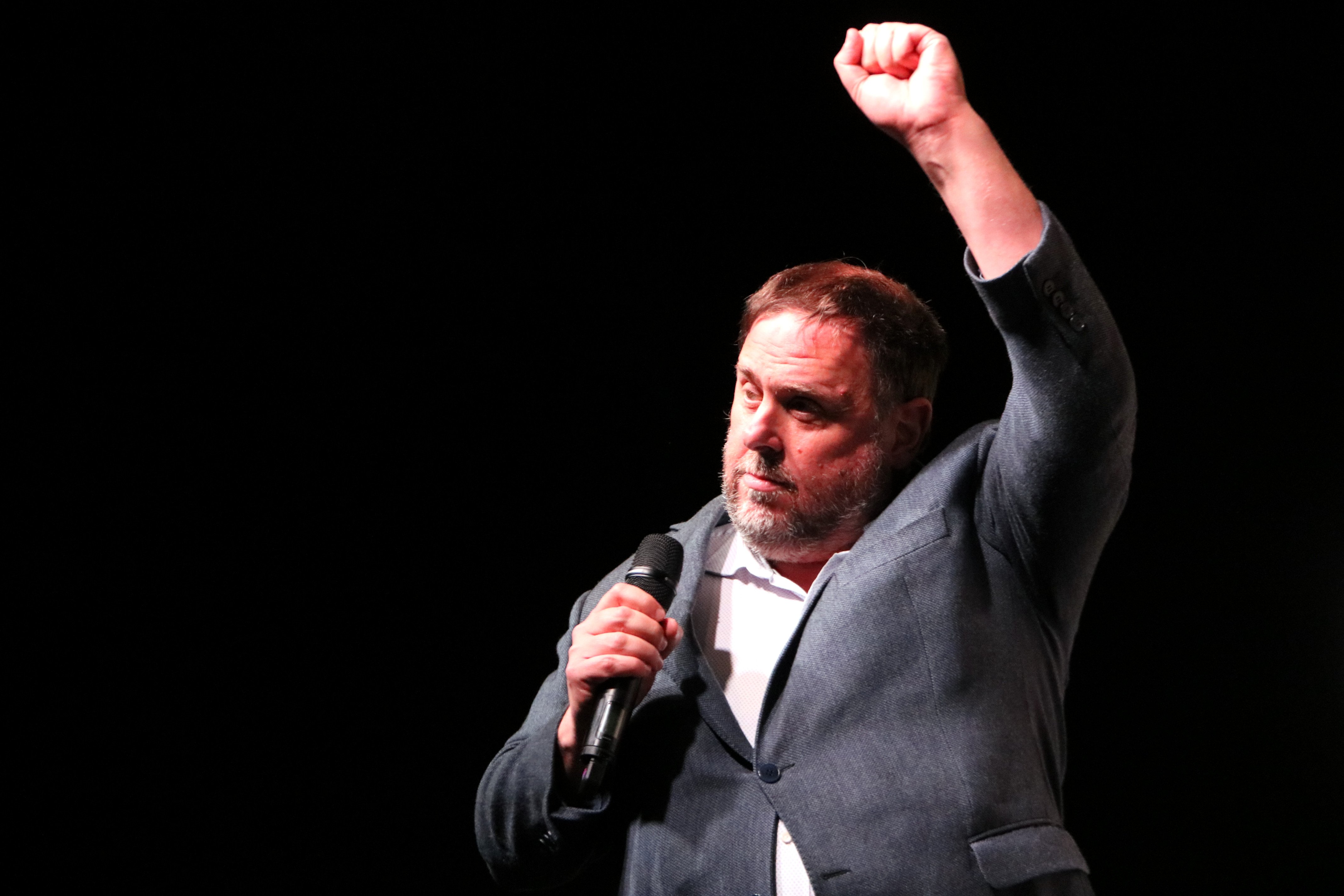The leader of the Catalan Republican Left (ERC), Oriol Junqueras, has reaffirmed his commitment to the success of the dialogue table between the Catalan and Spanish governments and calls for an outstretched hand between the two administrations. In a letter written to Spain's La Sexta television network, he defended the ERC strategy despite the doubts it raises for the other pro-independence forces, Junts and the CUP, this way: "We will never abandon dialogue and negotiation. It would be naive to believe that the political dialogue with the Spanish state will bear tangible fruit immediately, but to believe that we can do without it would be a very great irresponsibility. No matter how much it is criticized and ridiculed, the dialogue and negotiation table between governments is a success in itself because it opens a space for the potential resolution of the conflict".
The formula he proposes is clear but Junqueras also calls for even more ingredients to be added: "To become a state, it is essential to build a large majority in Catalonia and at the same time we must gain legitimacy everywhere. The game is played both internally and abroad. The conclusion is that we need to be numerically greater, an indisputable, plural and transversal majority that demonstrates that it governs well for everyone and puts at the centre of the agenda, the resolution of the existing political conflict through democratic means." Thus, in defending the path to independence as the "best tool to help" Catalans, he admits that it "must adapt to the circumstances with the most appropriate strategies" at each moment.
The Scottish way: an agreed referendum
Junqueras calls for greater majorities, but it should be remembered that the Catalan independence movement has just broken its record in the recent elections to the Catalan Parliament in February, when it achieved one of the goals which the independence movement has had for longest: to overcome the 50% barrier of support for pro-independence parties in an election, which it achieved this year when it reached 51.32%. The figure comes from the sum of votes for ERC, Junts and the CUP and also those of the extra-parliamentary pro-independence parties, among which the PDeCAT stands out with 76,900 votes. In terms of the number of pro-independence MPs, this legislature also has the highest figure in history, with 74 deputies who want Catalonia to be an independent state: 33 from ERC, 32 Junts, and 9 for the CUP, 6 more than is needed for a parliamentary majority, which stands at 68 seats. In the previous legislature, pro-independence forces had a majority of 70 seats, four less than now.
Indeed, Junqueras is mirrorings the model used by Scotland, which is aiming for a second referendum having achieved less pro-independence support in the last elections, 50.1%, than the independence movement in Catalonia did: "And today we still believe that the best way, as we have always defended, is the Scottish way. The way of the pact and the agreement, the way of the agreed referendum. It is the option that generates most guarantees and immediate international recognition. Because we know that other ways are not viable or desirable to the extent that, in fact, they take us away from the goal that we want to reach." This firm commitment to an agreed referendum, which he contrasts with other solutions, has already raised controversy in the Spanish media, which consider that Junqueras has thus renounced a unilateral route to independence.
What about pardons?
As for the proposal that is moving forward, for pardons to be granted by the Spanish government to himself and the other convicted pro-independence leaders, Junqueras sees a kind of deference in this to the dialogue-based proposition that he is presenting, as he reiterates in his letter: "For us, we have explained it many times and we continue to defend it without nuances, an amnesty is our priority to end the political persecution. The matter does not end with the exiles, or with the political prisoners, but must be solved for the other 3,000 people who are suffering from judicial persecutions. However, gestures can alleviate the conflict, alleviating the pain of repression and the suffering of Catalan society, and any gesture in the line of the dejudicialization of the conflict, makes it easier to be able to follow this path".
Cover photo: An archive image of Oriol Junqueras, photographed before entering Lledoners prison in March this year.

